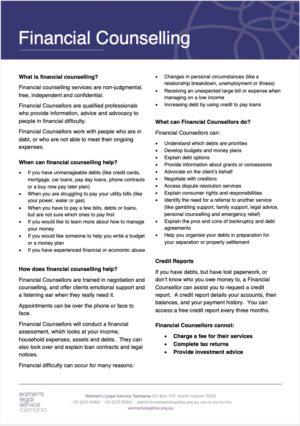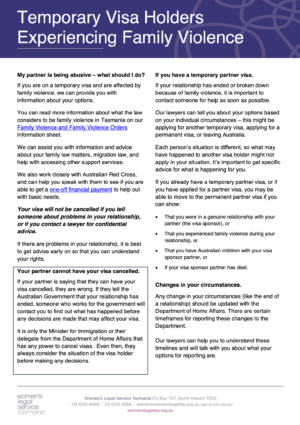Fact Sheets
Our fact sheets will provide you with a brief overview of some of the legal matters that we regularly deal with.
Click through the link to view a pdf copy of each fact sheet, and use your internet browser to save or print a copy. If you would like more information or legal advice about any legal issue, not just the ones listed here, please give our telephone advice line a call.
Financial Counselling
What is financial counselling and how can it help?
Financial Counsellors are qualified professionals who provide information, advice and advocacy to people in financial difficulty.
Temporary Visa Holders Experiencing Family Violence
If you are on a temporary visa and are affected by family violence, we can provide you with information about your options.
We can assist you with information and advice about your family law matters, migration law, and help with accessing other support services.

